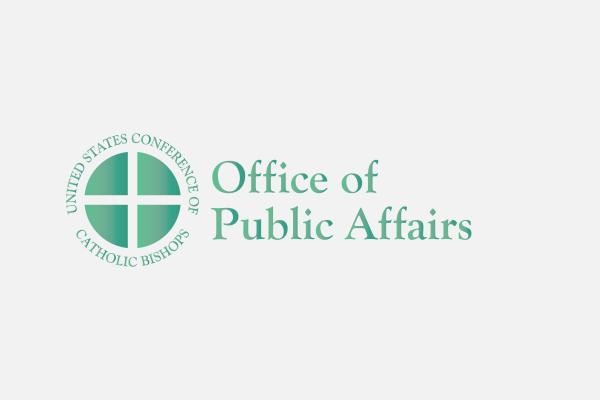Orthodox-Catholic Dialogue Meets, Issues Statement on Plight of Christians in the Middle East
WASHINGTON—The North American Orthodox-Catholic Theological Consultation held its 81st meeting at St Paul’s College in Washington October 27-28. The meeting was chaired by Catholic Archbishop Gregory Aymond of New Orleans.
During this meeting the members heard reports about major events in the lives of the Catholic and Orthodox Churches and issued a brief statement, “On the Plight of Churches in the Middle East.”
“We are concerned for our fellow Christians who, in the face of daunting challenges, struggle to maintain a necessary witness to Christ in their homelands,” they wrote. “United with them in prayer and solidarity, we ask our fellow Christians living in the West to take time to develop a more realistic appreciation of their predicament. We ask our political leaders to exert more pressure where it can protect these Churches, many of which have survived centuries of hardship but now stand on the verge of disappearing completely.”
The members of the Consultation also continued their study of the role of the laity in the two churches and the intermediate or regional levels of ecclesial authority. A paper on the Catholic theology of the parish by Sister of Charity of Leavenworth Susan K. Wood of Marquette University was presented in her absence. Father Patrick Viscuso of the Greek Orthodox Archdiocese of America delivered a paper, “Canonical Reflections on the Orthodox Parish.” Father Nicholas Apostola of the Romanian Orthodox Archdiocese in the Americas presented a study, “The Role of the Laity in the Church,” and Chorbishop John D. Faris, pastor of St. Louis Gonzaga Maronite Church in Utica, New York, presented a paper, “Synodal Governance in the Eastern Catholic Churches.”
The Consultation also welcomed a new Orthodox member, Despina D. Prassas, Ph.D., associate professor of theology at Providence College in Providence, Rhode Island.
The next meeting is slated to take place at Holy Cross Greek Orthodox School of Theology in Brookline, Massachusetts, June 5-7.
Additional Orthodox members include Rev. Dr. Thomas FitzGerald, dean of the Holy Cross Greek Orthodox School of Theology in Brookline, Massachusetts; Father John Erickson, former dean and professor of canon law and church history at Saint Vladimir's Orthodox Theological Seminary in Crestwood, New York; Father James Dutko, pastor of St. Michael’s Carpatho-Russian Orthodox Church in Binghamton, New York; Susan Ashbrook Harvey, Ph.D., of Brown University; Paul Meyendorff, Ph.D., Alexander Schmemann professor of liturgical theology and editor of Saint Vladimir’s Theological Quarterly, Crestwood, New York; Bishop-Elect Alexander Golitzin, professor of theology at Marquette University, Milwaukee; Robert Haddad, Ph.D., Sophia Smith professor emeritus of history at Smith College in Northampton, Massachusetts; Father Robert Stephanopoulos, pastor emeritus of the Greek Orthodox Archdiocesan Cathedral of the Holy Trinity, New York; Father Theodore Pulcini, associate professor of religion at Dickinson College, Carlisle, Pennsylvania; and Father Mark Arey, general secretary of the Standing Conference of Canonical Orthodox Bishops in the Americas (SCOBA), New York, staff.
Additional Catholic members are Jesuit Father Brian Daley (secretary), Catherine F. Huisking professor of theology at the University of Notre Dame; Thomas Bird, Ph.D., of Queens College, City University of New York, Flushing, New York; Sylvain Destrempes, Ph.D., faculty of the Grand Seminaire in Montreal; Father Peter Galadza, Kule Family professor of liturgy at the Metropolitan Andrey Sheptytsky Institute of Eastern Christian Studies, Ottawa; Father John Galvin, professor of Systematic Theology, The Catholic University of America (CUA); Father Sidney Griffith, professor in the Department of Semitic and Egyptian Languages and Literatures, CUA; Father Joseph Komonchak, professor emeritus of religious studies at CUA; Monsignor Paul McPartlan, Carl J. Peter professor of systematic theology and ecumenism at CUA; Father David Petras, spiritual director and professor of liturgy at the Byzantine Catholic Seminary of Sts. Cyril and Methodius, Pittsburgh; Vito Nicastro, Ph.D., associate director of the Office for Ecumenical and Interreligious Affairs, Archdiocese of Boston; and Paulist Father Ronald Roberson, Ph.D., associate director of the U.S. Conference of Catholic Bishops’ (USCCB) Secretariat for Ecumenical and Interreligious Affairs, staff.
FULL TEXT of the joint statement follows:
Statement of the North American Orthodox-Catholic Theological ConsultationOctober 29, 2011Washington, DC
The Plight of Churches in the Middle East
The “Arab Spring” is unleashing forces that are having a devastating effect on the Christian communities of the Middle East. Our Churches in Egypt, Iraq, Syria, Lebanon, and Palestine report disturbing developments such as destruction of churches and massacres of innocent civilians that cause us grave concern. Many of our church leaders are calling Christians and all people of good will to stand in solidarity with the members of these ancient indigenous communities. In unity with them and each other, we the members of the North American Orthodox-Catholic Theological Consultation, gathered October 27-29, 2011, add our voice to their call.
We are concerned for our fellow Christians who, in the face of daunting challenges, struggle to maintain a necessary witness to Christ in their homelands. United with them in prayer and solidarity, we ask our fellow Christians living in the West to take time to develop a more realistic appreciation of their predicament. We ask our political leaders to exert more pressure where it can protect these Churches, many of which have survived centuries of hardship but now stand on the verge of disappearing completely.
When one part of the body suffers, all suffer (cf. 1 Cor. 12:26). As Christians in the West, we therefore have the vital responsibility to respond to the needs of our brothers and sisters who live in fear for their lives and communities at this moment. As Orthodox and Catholic Christians we share this responsibility and this concern together.
---
Keywords: North American Orthodox-Catholic Theological Consultation, Catholic Church, Eastern Orthodox Church, Greek Orthodox, dialogue, Archbishop Gregory Aymond, Christians, Middle East, statement, Arab Spring, Egypt, Iraq, Syria, Lebanon, Palestine, laity, Romanian Orthodox, parishes
# # # # #

